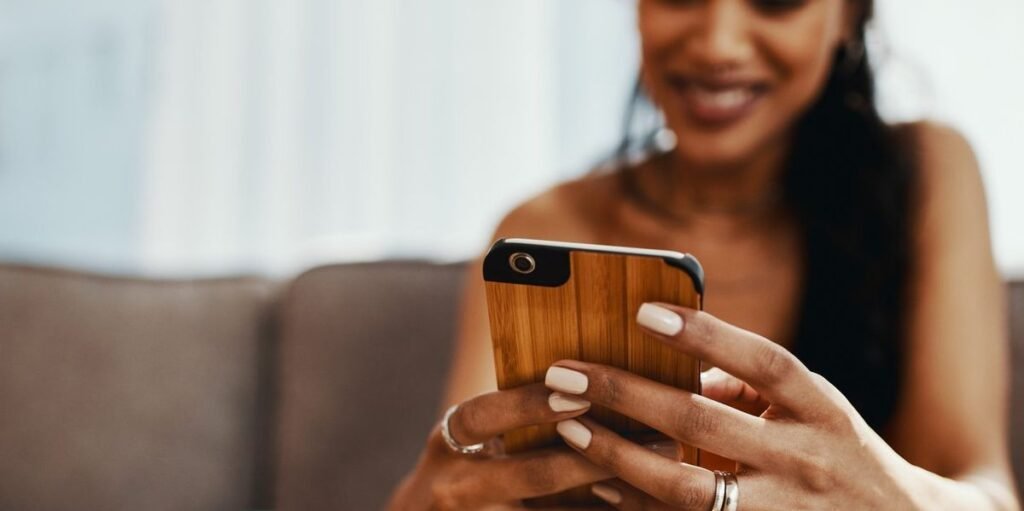Scrolling although #birthcontrol on social media is sort of a field of goodies. You by no means know what you’re going to get.
In a single video, a girl turns to disclose a dramatic weight achieve, blaming birth control pills. In one other, healthcare suppliers (HCPs) carry out a choreographed dance holding vaginal rings. A 3rd submit says, “Contraception makes you date crappy males.”
Social media makes it straightforward to place a message — any message, actually — into the world, however media has lengthy influenced conversations about ladies’s well being.
Melissa Jordan, a registered nurse, mentioned she remembers the extremely publicized Girls’s Well being Initiative research in 2002 that incorrectly mentioned taking estrogen causes breast most cancers. The outcomes of the poorly performed research dominated the information and scared thousands and thousands of ladies away from secure and efficient hormone therapy. Jordan mentioned some ladies nonetheless consider these outcomes as a result of there’s numerous misinformation about ladies’s well being on the market — particularly on social media.
“There’s little [accurate] data or training concerning menopause. I can solely think about that there’s even much less concerning sexual well being and contraception,” Jordan mentioned.
On one hand, social media provides extra accessibility to data total. Research exhibits some ladies, particularly youthful ladies, look to social media for perception on essential subjects like contraception.
However how are you aware what you’re listening to is true? And worse, what if it’s not?
Social media influencers and contraception
“Mis- and dis-information round contraception and sexual well being run rampant on social media,” mentioned Raegan McDonald-Mosley, M.D., MPH, CEO of the nonprofit group Power to Decide.
It may be even more durable to inform what’s reality vs. fiction when it appears like the knowledge is coming from a trusted buddy. Social media influencers — folks with numerous followers — can play a component in swaying opinions about birth control. And detrimental private experiences can lead folks to unfold misinformation.
For instance, one study discovered that influencers who had a detrimental tone about hormonal contraception exaggerated the dangers and uncomfortable side effects in comparison with non-hormonal choices.
“Readers needs to be involved as a result of hormonophobia [fear about hormones based on irrational causes] can gas misinformation and stop ladies from making knowledgeable reproductive healthcare selections,” mentioned Emily Pfender, an writer of the research and Ph.D. candidate on the College of Delaware.
One other study co-authored by Pfender discovered that influencers who talked about stopping hormonal contraception didn’t speak about alternative choices. “This sends a message to viewers that utilizing contraception shouldn’t be essential and will promote dangerous habits,” Pfender mentioned. “When influencers did begin a brand new contraception, it was most frequently fertility awareness-based strategies, which have excessive error charges and require particular information to make use of accurately.”
Social media and shared decision-making
Relating to making well being selections to your sexual and reproductive well being, it’s essential to know the supply behind the knowledge you’re taking in.
When unsure, McDonald-Mosley mentioned to ask your self the next questions:
- Is the knowledge from a reputable medical supply or supplier?
- Can you discover the identical data from one other trusted useful resource?
- When was the knowledge you’re taking a look at revealed?
- Does the particular person’s perspective appear overly biased or political?
Robyn Faye, M.D., an OB-GYN and member of HealthyWomen’s Women’s Health Advisory Council, mentioned she turns to her trusted social community — science — when sufferers carry up questionable theories. “I’ll pull up the newest articles from the CDC database and present them the knowledge I’ve,” she mentioned. “I actually simply must argue the purpose and, generally, it really works.”
Faye famous that the majority healthcare suppliers need to have an open dialog concerning the unusual stuff you learn on social media. They need to take the time to share data and ask questions. This results in shared decision-making and discovering the very best contraception possibility that works for you, your well being and your reproductive targets.
Nonetheless, it might be laborious to alter somebody’s opinion in the event that they really feel strongly about what they’ve learn on-line. That is completely effective, Faye mentioned. However she cautioned in opposition to placing an excessive amount of inventory in folks you don’t know.
Misinformation on social media can have a harmful impact on ladies’s well being. However it doesn’t must be this fashion. Information is energy, and confirming any data or considerations along with your HCP may also help you see the whole image — not only a small sq..
McDonald-Mosley mentioned too many individuals lack total information about reproductive and sexual well being as a result of they by no means realized about it in class or the group. That is the place the optimistic results of social media channels can shine by bridging the hole in accessible well being data.
“Social media shouldn’t be all unhealthy. It’s, actually, a robust instrument that can be utilized to achieve folks the place they’re with correct data they should take management of their reproductive and sexual well being.”
You may’t belief every little thing you learn on-line. However if you happen to do analysis and discuss to your HCP, you may shield your self from misinformation.
This useful resource was created with assist from Organon, a HealthyWomen Company Advisory Council member.

